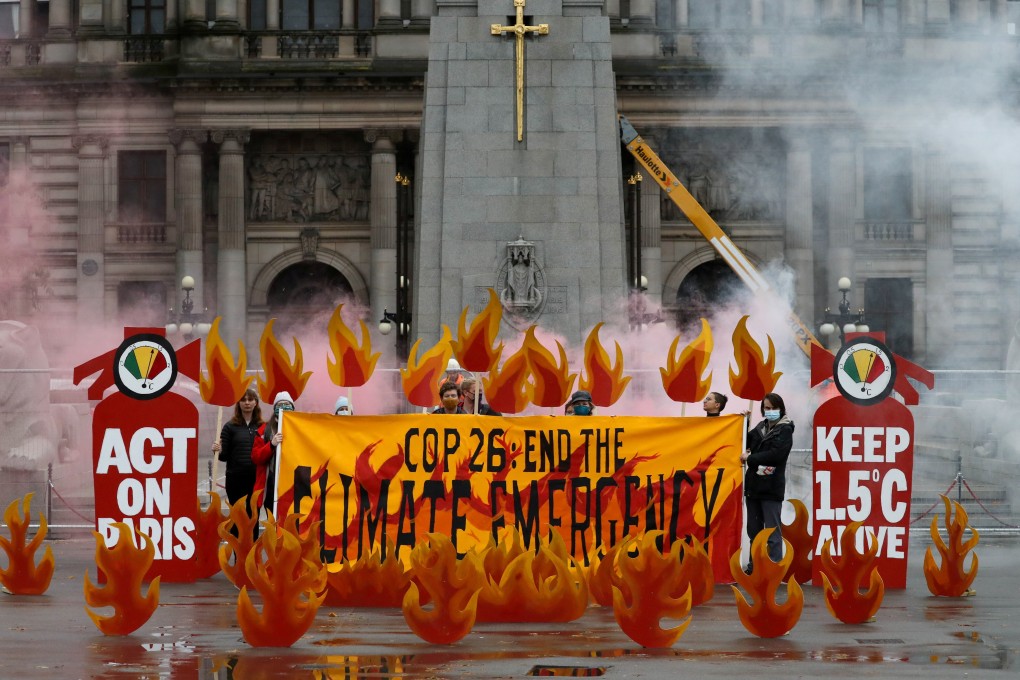Advertisement
Explainer | COP26 Glasgow: handy guide to key climate facts and terms
- UN climate summit, known as COP26 this year, is being held in Glasgow
- It kicks off two weeks of intense negotiations on how to tackle global warming
Reading Time:3 minutes
Why you can trust SCMP

Across 25 UN climate conferences since 1995, only twice have more than 110 world leaders joined the fray to confront the spectre of global warming. As they do so again Monday in Glasgow, an unspoken question looms: Copenhagen or Paris?
Will COP26, in other words, more closely resemble the Danish diplomatic debacle of 2009, or the triumph that six years later led to the first climate treaty in which all nations vowed to shrink their carbon footprint and collectively cap Earth’s rising temperature?
Here are some of the terms and key issues that will be discussed at the event, which started Sunday and is scheduled to run to November 13:
COP
Advertisement
Short for Conference of the Parties to the UN Framework Convention on Climate Change.
First held in 1995, it also serves as the meeting of parties to the 1992 Kyoto Protocol that first committed countries to reducing greenhouse gas emissions and those that signed on to the 2015 Paris Agreement. Governments meeting in the French capital six years ago agreed on a target of keeping global warming below 2 degrees Celsius (3.6 Fahrenheit), ideally no more than 1.5 degrees, by the end of this century compared with pre-industrial times.
Advertisement
The 26th conference was delayed by a year due to the coronavirus pandemic. More than 25,000 delegates are registered for the Glasgow event, which is being chaired by British official Alok Sharma.
Advertisement
Select Voice
Choose your listening speed
Get through articles 2x faster
1.25x
250 WPM
Slow
Average
Fast
1.25x